- Home
- Madeleine L'engle
The Young Unicorns Page 17
The Young Unicorns Read online
Page 17
“But Dr. Austin is not a surgeon.”
“Precisely. Therefore he could relieve me of the research and other practical laboratory problems so that I could spend more time in the operating theatre.”
The Bishop leaned back in a champagne-colored damask arm chair which set off his apricot hair, and closed his eyes. Lamplight fell on the pectoral cross, set with rubies and emeralds, which lay on his purple rabat. Canon Tallis remembered that the last time he had seen the Bishop the cross had been simpler, and hung on a considerably less ornate chain.
“Is Dr. Austin,” the Canon asked, “making the same kind of relatively inexpensive and simple Micro-Ray that doctors Shasti and Shen-shu were working on?”
“Yes, although his has been carried several steps further.”
“How simple is this instrument?”
Dr. Hyde gave a thin, pale smile. “If I had the formula I could take one of the stones from the Bishop’s cross, dismantle a ball-point pen, buy a few things from any supply house, and have at my disposal the kind of instrument I need only for the most delicate operations.”
“If you had the formula.”
“Shasti and Shen-shu made the Micro-Rays for me, as Austin does now. Shasti is Indian, Shen-shu Chinese; one expects Orientals to be devious. I have, during my career, worked with a number of highly respected Eastern men of science, and I have learned that their intellects are second to none, but they lack loyalty and honor.”
Tallis said, “The instrument is simple, but the formula is not?”
“You might put it that way.” The Doctor sounded irritated.
“As I understand it, the instrument, unless it is absolutely accurately made, can burn and destroy instead of producing a cool light that heals?”
“More or less. You wouldn’t understand it, I’m afraid, if I explained it more technically.”
“No, I’m sure I wouldn’t. I can see that you might not be pleased not to have the formula at your own fingertips, but a Micro-Ray takes a considerable time to assemble, doesn’t it?”
“Yes.”
“And surely isn’t the main thing to conserve your valuable time and to have the instrument at your disposal?”
“Surely you can see,” Dr. Hyde said, “that it is more complicated than this?”
“But is the formula really being deliberately withheld?”
“It is.”
“And yet, Dr. Austin continues to provide you with the instruments you need for your operations?”
“Thus far.”
“What is the life of one of the Micro-Rays?”
“About twenty-four hours.”
“And then it’s finished? Useless?”
“Yes. Of course that’s one of the things being worked on, greater stability and durability.”
“Has Dr. Austin—or did Shasti or Shen-shu—provide any other hospital with their instruments?”
“Not as far as I know. Remember, Reverend” (the Canon shuddered), “that the use of the laser is now general. But the Micro-Ray as refined by the Orientals and Austin is completely unique, infinitely superior as well as infinitely simpler, than any other device being constructed today.”
Canon Tallis turned towards the Bishop, who sat with his eyes still closed but an alert and listening expression on his serene face. “My Lord, I think I can understand Dr. Hyde’s annoyance, but not why you have used the word sinister in describing Dr. Austin.”
“Ah, Canon, that is the question, is it not? I had hoped that you would have been able to answer it for yourself by now. Whoever controls that gun can control the mind. Think of that, Tallis. Think, Tallis, think of this city. Think of the rottenness with which this Cathedral is surrounded. Think of the stench of corruption that rises from the streets. Think of the sin and evil, the crime and murder that—” interrupting the flow of his own words, the Bishop held up his hand for silence. “Listen, my children, listen.”
Around them they could hear the uneasy breathing of the city. An ambulance wailed. There was a sound that might have been gunfire, or a car’s muffler backfiring. Horns honked. Brakes screeched. Tires screamed. There was the distant wail of a child. “The sound of terror, Canon,” the Bishop said, “Listen. It has become the same in every city in the world. All our churches, all our police force, firemen, ambulances, relief agencies, are waging a losing battle against the plague of violence that has stricken our cities. But now: imagine that someone has a Micro-Ray. He can take the most hardened criminal; he can then touch his brain with controlled light in such a way that the man can become a lunatic, even worse than he already is, or docile as a little child.”
“But that’s monstrous,” the Canon said.
“It can be. Misused, it is. Or misunderstood, as Austin fails to understand it. But now think. Think of the possibilities. Think of taking a vicious degenerate, someone whose willful descent into evil has made him subhuman in every way. A brief and painless touch by the Micro-Ray can turn him into a happy law-abiding citizen. What do you think of that?”
For a long moment Tallis did not answer. Then he said, “My Lord, I think that is monstrous, too.”
“Why?”
“Because it would be to take away man’s freedom, my Lord. Because to take away a man’s freedom of choice, even his freedom to make the wrong choice, is to manipulate him as though he were a puppet and not a person.”
“You persist in extolling this freedom even when it is abused? And even when this abuse can be corrected?”
“I have spent my life trying to correct the abuse, my Lord.”
“And yet you balk now at the means to correct it?”
“Surely you are not serious, my Lord.”
“I have never been more serious.”
Tallis answered, heavily. He looked infinitely sad. “I don’t believe in the value of instant virtue, my Lord. I don’t believe in instant goodness.”
“You reject instant goodness for constant badness?”
“A young man I cared about very much,” Tallis said, “was murdered last summer in Lisbon because of the kind of constant badness, of evil, that you so rightly say is spreading like a plague in our cities. And yet: to save him by a beam of light shifting and changing the brain patterns of his enemies: my Lord, isn’t that as much murder as firing the gun which ended his life?”
Dr. Hyde rose, angrily. “You would, I assume, have been against vaccination at the time smallpox was endemic? Or against the pasteurization of milk? Or—”
Canon Tallis cut him off. “Hardly, Doctor. The deliberate changing of personality, of taking away someone’s identity, of destroying his integrity, is not the same thing as inoculation against disease. I agree that the violence in our streets is a disease, but this is neither the proper preventive nor the cure.”
The Bishop rose. “You have not seen these regenerated people, Tallis. I have. I hardly think it murder. But we are straying from the point. We are talking not about the use but about the misuse of the Micro-Ray. Or the refusal to use. We are talking about Dr. Austin. The Dean and I brought you here from England to investigate Dr. Austin. I gather your investigations thus far have yielded little fruit. I wished to leave you alone as long as possible, to give you that freedom which you value so highly but understand so little. I feel that the time has now come when I must tell you that I personally believe Austin to be a dangerous man. I want you to watch him more carefully, and to investigate him further. I gather you learned little or nothing the other night when you were at Gregory’s mansion for dinner. Yes, Tallis, I know you were there.” He paused, waited until silence lay coiled like a snake in the room. “Is Austin my enemy, Tallis? Or are you? Or are both of you?”
When Dr. Austin got home from the hospital, tired from long standing in the subway (he was old-fashioned enough to have given his seat to an elderly woman and modern enough to have made sure that it was she and not somebody else who got it), he asked his wife for the mail.
“You have an airmail letter from Dr. Shen-shu,”
she said. “It cost him a fortune in stamps.”
He glanced cursorily at the rest of the mail, pushed it aside, and took the letter from England. “I’m going to the study. Bring me a cup of coffee.” So might he have spoken to a nurse during an operation, or to a lab assistant during a critical experiment, his mind wholly preoccupied with what he was doing. He was not in the habit of giving his wife orders in this peremptory manner, and he did not even notice her startled reaction.
She went out to the kitchen to make the coffee. Suzy was there before her, interestedly inspecting the roast in the oven, the saucepans on the stove. Suzy could (and did) eat an incredible amount of food, and her weight was always just what it ought to be, her complexion unblemished peaches and cream.
“New York’s an island city, isn’t it?” she asked her mother, wrinkling her nose in distaste at the spinach in the steamer.
“Put the lid back on the steamer,” Mrs. Austin ordered automatically, measured water and coffee, plugged in the percolator. She was trying to concentrate solely on counting out cups of water, spoons of coffee, in order to keep from feeling panic and hurt at her husband’s words. Why was it suddenly so important for him to get a letter from Dr. Shen-shu when the two men had been corresponding for years? She had a sensation of being completely shut out from her husband’s life, and since whatever it was that he was hiding concerned her children, her cubs, she stood, her body tense as a lioness’, ready to spring.
“But it doesn’t seem like an island, Mother, with all the bridges and tunnels and subways and buses connecting it to every place. We seemed to be much more on an island up on our hill in Thornhill.”
The coffee was bubbling up in the percolator. Mrs. Austin sat down at the kitchen table. “Thornhill probably was more of an island, at that.”
“Today I had a free period in the library, and I’d finished my lessons and I was poking about looking for a book to do a report on, and I came across this old book—”
“Which old book?” Mrs. Austin corrected, but she was not really listening to her child. Her ears were cocked for any sound that might come from the study.
“An old book by this old writer,” Suzy answered, “I mean an old writer, Ernest Hemingway, and in the beginning of the book there was this quotation—a quotation by—oh, who is it Grandfather loves so much?”
“Einstein?”
“No, no, not anybody like—”
“Lancelot Andrewes? St. Chrysostom?”
“No, no. Oh—”
“Lewis Carroll?”
“No, Mother, oh do please keep quiet while I think! The quotation was about how no man is an island—”
“John Donne.”
“Yes! And it’s all about what Grandfather’s always saying, how we can’t love each other if we separate ourselves from anybody, anybody at all, and how anything that happens to anybody in the world really happens to everybody. And Grandfather says that you sort of understand this especially in a family—”
Still half listening, Mrs. Austin murmured, “That’s very true.”
“Well, then, Mother, something seems to be happening to us, our family, ever since we found the lamp and Emily called up the genie. And everybody’s trying to be islands about it, and John Donne and Grandfather both say it doesn’t work, and I think they’re right!” She realized that she did not have her mother’s full attention and she stamped to try to get it.
“You’re too old for stamping, Suzy,” her mother said.
“You’re not listening!”
“Sorry—”
“You and Daddy are having secrets from us. You’re being islands, and I suppose that’s not so peculiar. Grown-ups never think children can understand anything. But you and Daddy are being islands with each other, and that is peculiar.”
“Why do you say that?” Had it become that apparent? Mrs. Austin opened her mouth as though to say something, but at that moment the percolator made the loud gurgling noise that indicated that the coffee was ready. “Daddy’s waiting,” she said. “And it’s almost time for dinner. Is the table set?”
She went into the study, where her husband sat at his desk, the pages of Dr. Shen-shu’s letter spread out in front of him. She never asked him what was in his professional mail; usually he told her; over the years she had come to have a working knowledge of his research and he liked talking things over with her.
She put the coffeepot down on Dr. Shasti’s brass table, poured her husband a cup of coffee and set it down on the desk in front of him, looking at him questioningly.
He picked up the cup, gesturing to her that he didn’t need or want anything more, as though she were the lowest of scrub nurses.
She left the study and went into the dining room, where the children were setting the table, and on through into the kitchen. Was there time to make some cookies or a cake before dinner? If she could occupy herself with something familiar like baking, perhaps she would not cry.
Dave walked swiftly along Broadway. Occasionally he glanced carefully behind or around him. When he was quite certain that he was not being followed he began to think about how he would get Rob to the Bishop.
Fourteen
The family was seated around the dining table when Dave arrived. At Mrs. Austin’s suggestion he pulled up a chair to join them for dessert. He had eaten little during the day, but he was singularly unhungry. When Rob started to clear the plates, Dave, his dessert hardly touched, rose to help him and followed him out to the kitchen.
“I wanted to talk to you,” Rob said, putting the plates in the sink, “and you went rushing off.”
“That’s funny,” Dave answered. “I want to talk to you, too. That’s what I’ve come back for.”
“But why did you go off, then? I only stayed at the Rabbi’s fifteen minutes. Dave, I want to talk to you alone. It’s important.”
Dave had not expected it to be this easy. He put his pile of dishes down. “Why don’t we take Rochester for a walk after dinner, then?”
“Okay.”
“Do you mind if I take you to see someone?”
“Who?”
“The Bishop.”
Rob looked at Dave. “What for? I don’t think I need to see the Bishop about anything. It’s you I want to talk to.”
“The Bishop wants to see you. But you must promise not to say anything about it.”
“Not to Mother and Daddy?”
“Definitely not.”
“Why not?”
“Do you have to tell your parents everything?”
“Why shouldn’t I? The only time I don’t tell them is when I’m ashamed to tell them something. And then I always feel so awful that I end up telling them anyhow. Is there anything wrong about the Bishop?”
“How could there be anything wrong about the Bishop, idiot? I’m just going to take you to St. James chapel to talk with him. Shh. I’ll explain later. Not a word.” He grabbed the little boy’s arm so roughly that Rob let out a small cry of pain.
“Dave! You hurt!”
“Shut up,” Dave said, roughly.
Rob, open-mouthed, was on the brink of tears. Dave was often moody, sometimes rude, but he had always been gentle; he had never been like this.
Dave’s grip relaxed, but he did not let Rob’s arm go. “Don’t say anything. Not anything. Promise.”
“I won’t say anything.”
“Not to your mother or father. Not until I say you can. Okay?
“Okay, Dave.”
Dave let him go and turned to go back into the dining room, met Emily coming into the kitchen with the milk pitcher and almost bumped in to her. “Listen where you’re going!” he said.
Emily flashed back, “You look where you’re going, you big lug!”
Rob returned to the table. He was no longer hungry, even though there was leftover chocolate mousse.
“Are you all right, Rob?” his mother asked as he refused it.
“I just don’t think I’m very hungry. Could I eat it at bedtime, maybe?”
Mrs. Austin looked at him, thinking that he seemed pale, and not himself.
“Rob and I’ll take Rochester out for a walk,” Dave said.
Dr. Austin paused, on his way to his study. “Okay, Dave, thanks. But not a long walk, please. I’d like Rob to get to bed on time for once. Keep it down to fifteen minutes.”
“Okay,” Dave mumbled. If Rob were in danger, then getting him to the Bishop, to safety, was what counted. The one thing that seemed clear to Dave in this mud of confusion was the undoubted presence of danger.
“It’s always fifteen minutes,” Rob said. “Whenever I want to do anything.” But he did not argue with his father.
As soon as the table was cleared the two boys set off, leaving Vicky and Suzy washing up, with Emily drying.
“Okay, Rob,” Dave said as the front door slammed behind them. “What’d you want to talk to me about?”
“Do you know two boys in leather jackets?”
“I know dozens of boys in leather jackets. Practically every kid in my school has a leather jacket.”
“These guys had things on their sleeves that looked sort of like bats. And they said they knew you.”
“When?”
“This afternoon, right outside school. They came up and said you wanted to see me, and Rochester didn’t like them and growled at them and they ran away.”
“Listen, Rob,” Dave said fiercely, “any time you see someone with a bat on his sleeve, stick close to Rochester. And tell me right away.”
“Well, I am telling you. If you’d been here when I got home I’d have told you then. Why? What did they want?”
“I don’t know. But no good.”
They were going by the synagogue. “Wait a minute.” Rob began to feel in his pockets.
“Come on, Rob. You heard your father. We don’t have much time.”
“I know. Why did you tell Daddy we’d be back in fifteen minutes? You know we can’t walk to the Cathedral and back in fifteen minutes.” He had succeeded in finding what he was looking for, a stub of chalk. Carefully he wrote a large R against the wall of the synagogue.

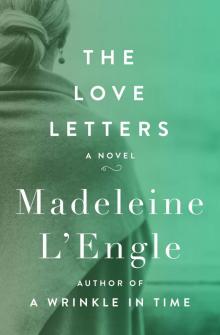 Love Letters
Love Letters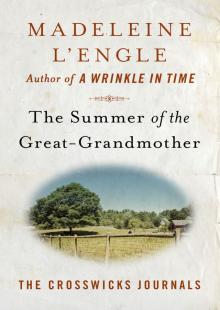 The Summer of the Great-Grandmother
The Summer of the Great-Grandmother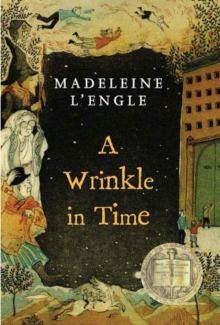 A Wrinkle in Time
A Wrinkle in Time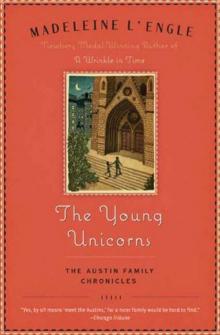 The Young Unicorns
The Young Unicorns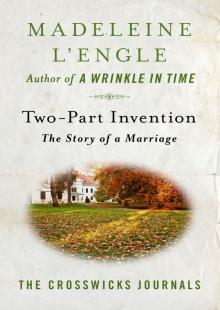 Two-Part Invention: The Story of a Marriage
Two-Part Invention: The Story of a Marriage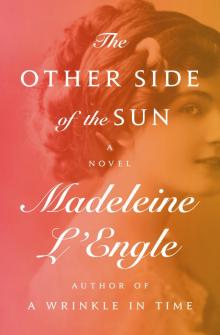 The Other Side of the Sun
The Other Side of the Sun A House Like a Lotus
A House Like a Lotus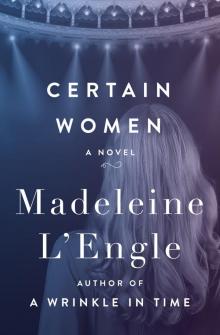 Certain Women
Certain Women Many Waters
Many Waters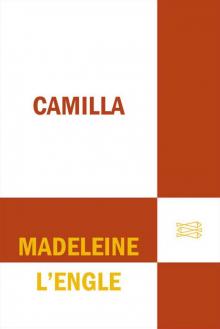 Camilla
Camilla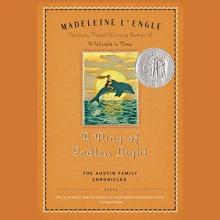 A Ring of Endless Light
A Ring of Endless Light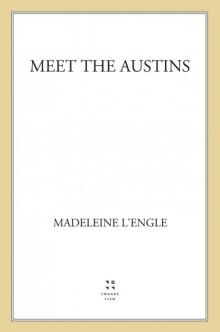 Meet the Austins
Meet the Austins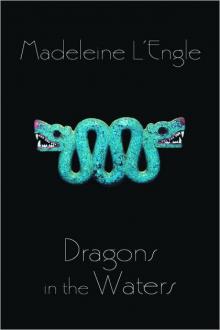 Dragons in the Waters
Dragons in the Waters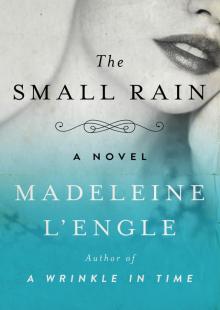 The Small Rain
The Small Rain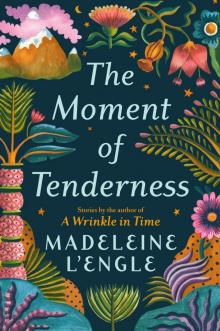 The Moment of Tenderness
The Moment of Tenderness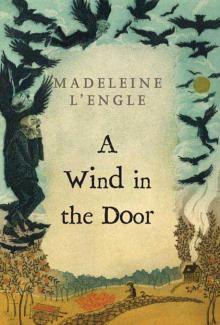 A Wind in the Door
A Wind in the Door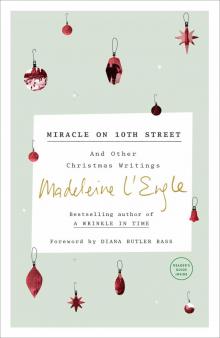 Miracle on 10th Street
Miracle on 10th Street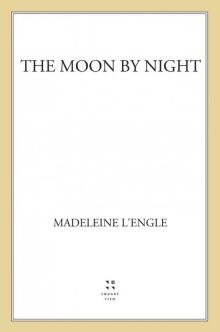 The Moon by Night
The Moon by Night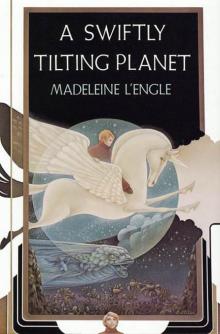 A Swiftly Tilting Planet
A Swiftly Tilting Planet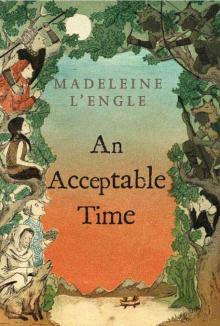 An Acceptable Time
An Acceptable Time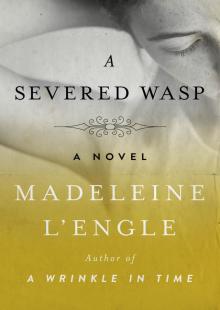 A Severed Wasp
A Severed Wasp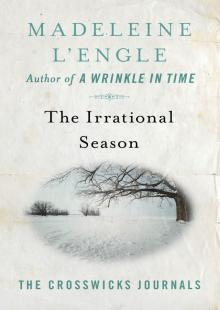 The Irrational Season
The Irrational Season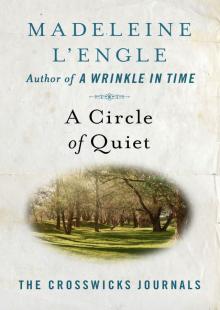 A Circle of Quiet
A Circle of Quiet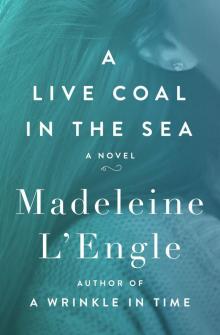 A Live Coal in the Sea
A Live Coal in the Sea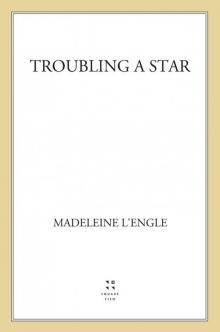 Troubling a Star
Troubling a Star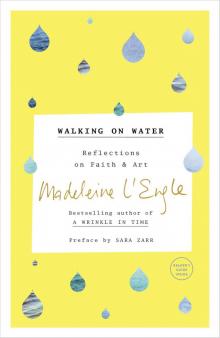 Walking on Water: Reflections on Faith and Art
Walking on Water: Reflections on Faith and Art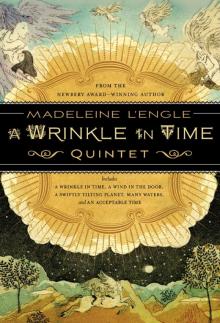 A Wrinkle in Time Quintet
A Wrinkle in Time Quintet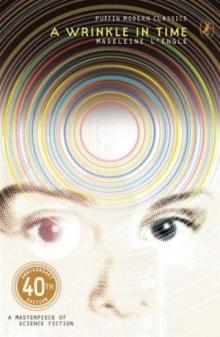 Wrinkle in Time
Wrinkle in Time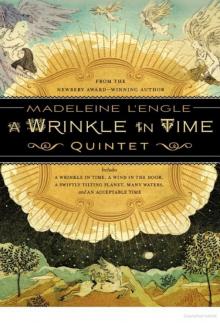 The Wrinkle in Time Quintet
The Wrinkle in Time Quintet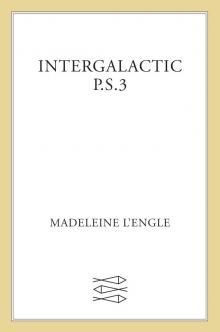 Intergalactic P.S. 3
Intergalactic P.S. 3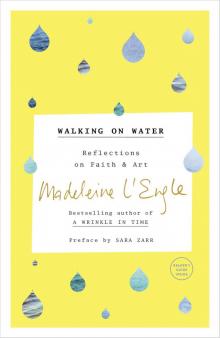 Walking on Water
Walking on Water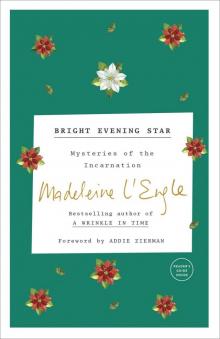 Bright Evening Star
Bright Evening Star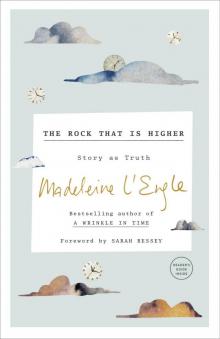 The Rock That Is Higher
The Rock That Is Higher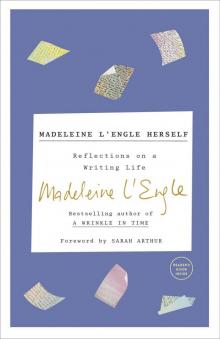 Madeleine L'Engle Herself
Madeleine L'Engle Herself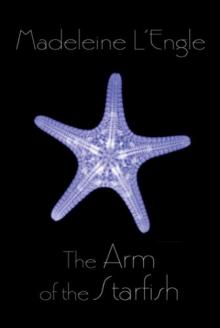 The Arm of the Starfish
The Arm of the Starfish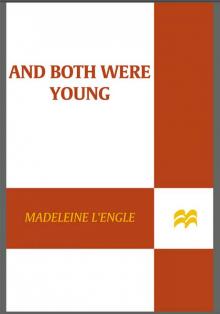 And Both Were Young
And Both Were Young The Twenty-four Days Before Christmas
The Twenty-four Days Before Christmas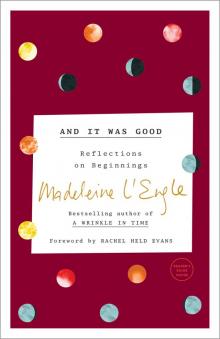 And It Was Good
And It Was Good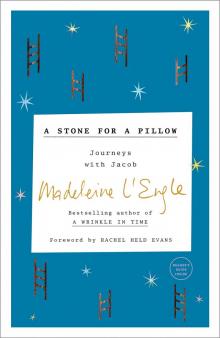 A Stone for a Pillow
A Stone for a Pillow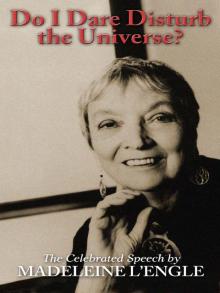 Do I Dare Disturb the Universe?
Do I Dare Disturb the Universe?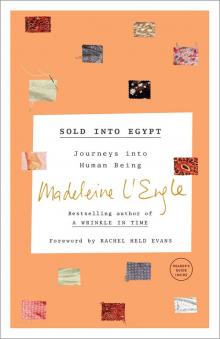 Sold into Egypt
Sold into Egypt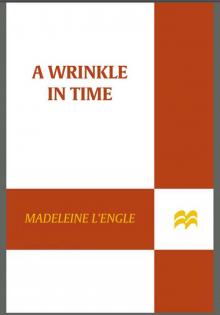 A Wrinkle in Time (Madeleine L'Engle's Time Quintet)
A Wrinkle in Time (Madeleine L'Engle's Time Quintet)